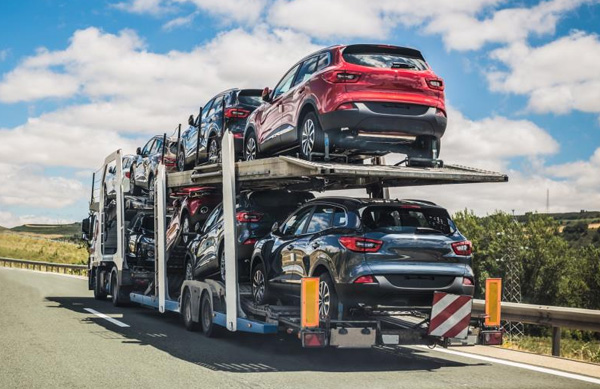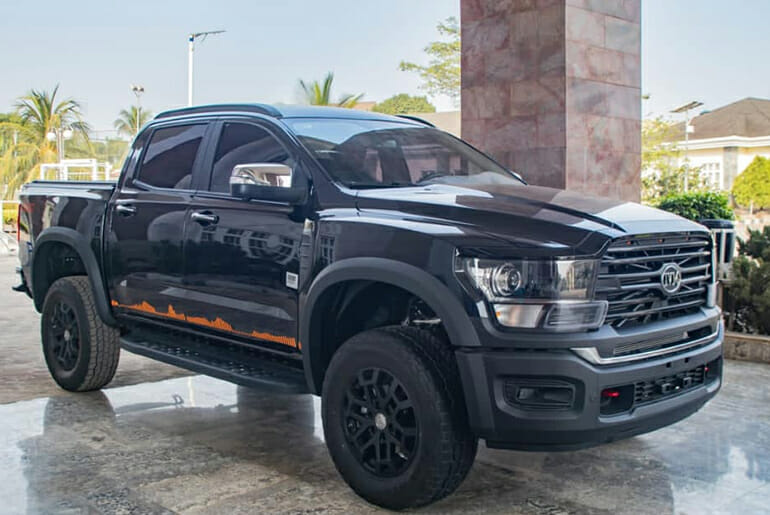In Feburary 2022, the Nigerian Custom Service introduced the Vehicle Identification Number for the valuation of imported vehicles. This was done due to the need to ensure uniformity of duties on imported used vehicles of the same year.
Table of Contents
Still, like most things Nigerian go, when this electronic platform was firstly introduced, it was filled with so many controversies as freight forwarders and clearing agents operating in the nation’s maritime sector kicked against it. The claim was that it was filled with hitches and inconsistencies.
Buy top trending Car accessories in Lagos and Original Korea Battery now Check @carfanzy Lagos on Instagram
Lately, the new news is that this platform has led to an increase of over 100 percent in duties paid on imported used vehicles, especially those whose models are below 2013. To worsen the situation, the weakness of the naira against the dollar has contributed in driving up the vehicle prices.
During the launch of VIN for the electronic evaluation of imported vehicles in Feburary, many stakeholders voiced their displeasure about the Custom’s objectivity while pointing out that the values used did not accurately factor in annual depreciation as required for used vehicles.
Possibly, the current exchange rate could be an integral source fueling the low importation of vehicles currently ongoing. Today in Nigeria, vehicles that are supposed to be necessities are now far-fetched luxuries.
In a recent event, the Acting National President of the Association of Nigerian Licensed Customs Agents, Kayode Farinto, expressed displeasure over the hitches encountered with the VIN even as he raised concerns that some vehicles were yet to be captured on the VIN platform.
He noted that the platform was selective in nature, working well with standard chassis vehicles while not performing optimally with non-standard chassis vehicles.
“When the Customs’ VIN was being conceptualised, I was one of those that asked that we have a pilot scheme. But my advice was not heeded by the Customs, which went ahead to begin full implementation. Now, there are some categories of vehicles that have not been captured under the VIN Valuation policy.
“There are some categories of vehicles that have not been factored in under the Customs VIN Valuation policy. Some Mercedes Benz, some ML, some X-Class have not been factored in the VIN valuation policy,” he noted.
Challenges Of Owning Tokunbo Cars In Nigeria
When the Federal Government raised the age limit of vehicles from 10 years to 15 years in 2010, the intention was to curb dumping of overaged and outdated vehicles into the country and encourage the use of newer vehicles.
Unfortunately, the policy did not go far as more than 60 percent of Nigerians, especially youths, still find it impossible to acquire newer cars.
From all angles, it looks as though the government is trying to actualise the policy on new vehicles through the introduction of VIN. Some freight forwarders are of the opinion that the introduction of VIN for vehicle clearance is an indirect way of phasing out older vehicles as the age limit of vehicles on the platform is nine years—2013.
According to the Ports & Terminal Chapter Chairman of the National Association of Government Approved Freight Forwarders, George Okafor, he noted that vehicles below the 2013 model were billed to pay 2013 duties.
“The challenges are that cars from the 2012 model and downwards are still paying the duty of the 2013 model. The ones that are cheaper now are even the duty we pay on the 2013 model. If you bring in a car whose year is lower than 2013, you will be asked to pay for 2013. Cars lower than 2013 will pay the duty for a 2013 model, which makes the payment higher. It is like the government wants to phase out old vehicles, they want to discourage people from bringing in older vehicles.”
Speaking further on the matter, Okafor said the challenge was mostly with Mercedes Benz and BMW cars, adding that he asked to pay over N3m for a car whose duty was supposed to be N650,000.
“The situation is affecting the clearance of vehicles. Many people are abandoning their vehicles, mainly Mercedes Benz and BMW, because their duties are very high. I have this 2003 Mercedes M-Class. We paid almost N3m to clear it. The value I got before the arrival of the vehicle. We spent almost over N3 million to bring it out of the Customs and the port. The people that contributed money to clear the vehicle are saying that they will sell the car to get their money, even though they may not be able to recover their money fully. I had already collected the duty for N650,000 before the arrival of the vehicle but the car didn’t enter Nigeria before the introduction of the VIN. So, when the vehicle arrived and the VIN valuation commenced, they said it was and the VIN valuation commenced, they said it was N3m. So, you can imagine from N650,000 to over N3 million.”
He also noted that the situation had forced a lot of people into abandoning their vehicles at the ports, saying that it was the government’s own way of getting rid of older vehicles.
On his part, Farinto urged the government to review the policy, stressing that most of these vehicles below 2011 were used for e-hailing business by young Nigerians.
“What I think the government should do is to review the policy. Be it as it may, it is the policy of the Federal Government and you don’t expect the Customs to legitimise illegality. You can’t see the 2009 vehicle in the system; the least you can see is 2013.”
According to him, the harsh economy is one of the reasons why older vehicles are flooding the country.
“So, we are now telling them that the policy is 12-year-old. They should bend backwards to 2011 and I think they are working on that, you should be ready to pay the duty of 2013 for a vehicle that is less than the 2013 model. The policy is that private vehicles coming into the country cannot be older than 12 years while commercial vehicles can be up to 15 years.”
He further said, ‘it is the harsh economy that has caused older vehicles to litter the country. I am alos of the opinion that the government can review that policy so that it can satisfy the internet of the youth, the newly employed and those that are going into commercialization. This will, at least, make tham self-employed. Even if you look at the 2011 model, how many people can afford it? My vehicle is 2010 and it is over N7.5m. So, that is why the government should look at it and review that policy.”
A car dealer at the popular Berger automobile mart, Chinonso Stainless, said that the situation had taken a negative toll on their businesses, noting that sales had dropped.
“I must tell you the truth, our sales have dropped. The ones we are selling for now are mainly those that came in before the introduction of VIN. But for vehicles that newly arrived in Nigeria, their prices are still very high, especially for older vehicles below 2010, because that is what we mostly use here and that is also what we sell faster. So, it has not really been easy.”
Have 1 million naira and above to Buy or Sell Cars In Nigeria? Check Carmart.ng RIght Now
All rights reserved. Reproduction, publication, broadcasting, rewriting, or redistribution of this material and other digital content on carmart.ng is strictly prohibited without prior express written permission from Carmart Nigeria - Contact: [email protected]
Stay informed and ahead of the New Car info! Follow The Carmart Blog on WhatsApp for real-time updates, Cheap Cars, and Latest new car content. Don't miss Any –
Join The Carmart Blog Channel







